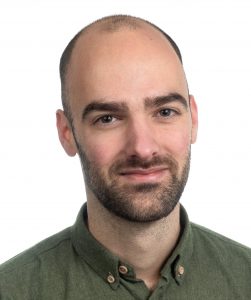
After my graduation from the research master Neuroscience and Cognition at Utrecht University, I joined the lab in 2014, to work as a research assistant on the large prospective Police-in-Action study. This study focused on the role of automatic defensive responses in the development of posttraumatic stress symptoms in police recruits. In 2015, I started my PhD project with Karin Roelofs and Saskia Koch on the same study, focusing on neural emotion-regulatory circuitries predicting acute and long-term stress-responses. After graduation, I started a post-doc with Rebecca Böhme at the Centre for Social and Affective Neuroscience at Linköping University (Sweden) in 2021, where I am working on the mechanisms underlying self- versus other distinction in social touch.
Selected publications:
Kaldewaij R, Koch SBJ, Volman I, Toni I, & Roelofs K. (2016). On the Control of Social Approach–Avoidance Behavior: Neural and Endocrine Mechanisms. In: M. Wöhr, S. Krach (eds.) Social Behaviour from Rodents to Humans: Neural Foundations and Clinical Implications.
Kaldewaij R, Koch SBJ, Zhang W, Hashemi MM, Klumpers F, & Roelofs K. (2019). High Endogenous Testosterone Levels Are Associated With Diminished Neural Emotional Control in Aggressive Police Recruits. Psychological Science, 30 (8), 1161-1173
Kaldewaij R, Koch SBJ, Zhang W, Hashemi MM, Klumpers F, & Roelofs K. (2019). Frontal Control Over Automatic Emotional Action Tendencies Predicts Acute Stress Responsivity. Biological Psychiatry: Cognitive Neuroscience and Neuroimaging, 4 (11), 975-983
Kaldewaij R, Koch SBJ, Hashemi MM, Zhang W, Klumpers F, & Roelofs K. (2021). Anterior prefrontal brain activity during emotion control predicts resilience to post-traumatic stress symptoms. Nature Human Behaviour (in press)